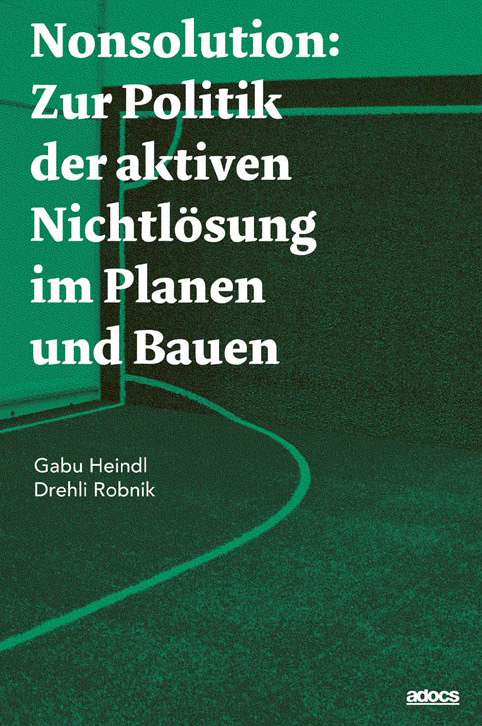Nonsolution. Zur Politik der aktiven Nichtlösung im Planen und Bauen

Problems call for solutions. But what is described as a problem and how are answers and solutions developed? In view of the climate catastrophe, the unfair distribution of wealth or the demand for affordable housing and urban space for all, purely technical solutions are often propagated that ignore political contexts and complex conditions. At the same time, there are approaches that only ask questions without positioning themselves with possible answers or, to the contrary, insist on absolute maximum solutions. Such purist approaches as well as the technically and administratively abbreviated solutions leave existing power relations untouched.
In nonsolution, the authors propose a radically democratic, politicized approach to the problem of the solution. The term nonsolution, coined by the sociologist, historian and urban theorist Siegfried Kracauer, opens up a field for experimental ways of thinking: It is not solutions that are avoided, but an active non-solution that is pursued. The non affirms conflict and opposition, the rejection of holistically closed identities and the opening up of structural solutions to their given contexts and desirable futures.
With a view to housing and urban development against the pressure of capitalization and exclusion, this book combines planning activity with political theory to form a critique of architectural activity.
Nonsolution. On the politics of active non-solution in planning and building
Reading Sample
Author Gabu Heindl, Drehli Robnik
Publisher adocs
Hamburg, 2024
110 pages
ISBN: 9783943253825
Link to publisher